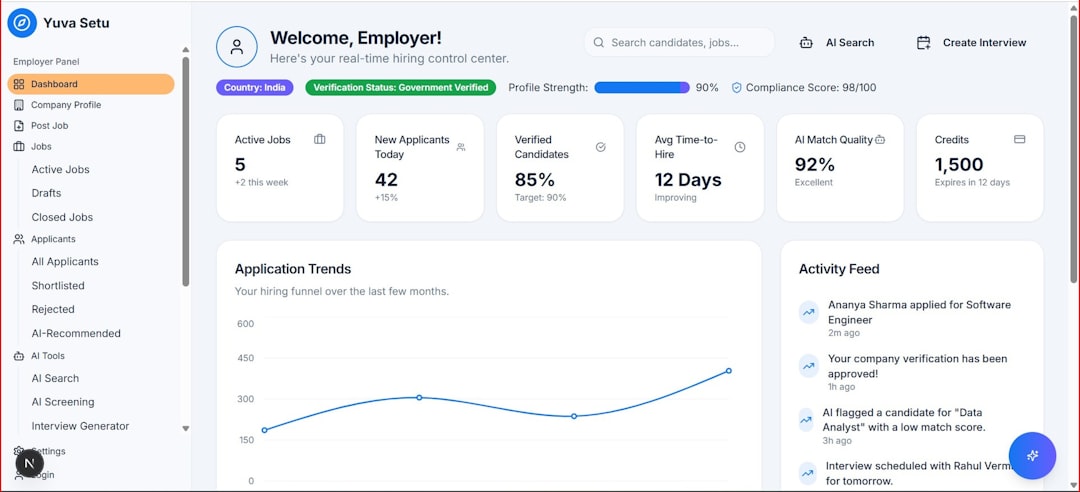In recent years, the adoption of artificial intelligence (AI) in the real estate industry has surged. From automating property valuations to predicting housing market trends, AI tools are revolutionizing how real estate professionals and investors make decisions. These tools enable faster, more accurate analysis of large datasets, allowing for deeper insights and more confident decision-making in a highly dynamic market.
So, how exactly do AI tools analyze real estate market data? The process combines advanced algorithms, machine learning techniques, and vast amounts of structured and unstructured data from various sources. Let’s take a closer look at how these systems work and what makes them so effective.
Table of Contents
Understanding the Data
AI tools rely on vast quantities of data. This includes:
- Historical transaction records – Sale prices, dates, property types.
- Demographic data – Population growth, age distribution, income levels.
- Economic indicators – Employment rates, interest rates, GDP growth.
- Geospatial data – Maps, neighborhood features, proximity to amenities.
- Market listings – Active listings, time on market, price changes.
By aggregating all this information, AI systems can create a comprehensive picture of the real estate landscape in a specific area.

Applying Machine Learning Algorithms
Once the data is collected, AI tools use sophisticated machine learning (ML) algorithms to process and analyze it. There are several key techniques:
- Regression Analysis: Predicts property values based on historical price data and property features.
- Classification: Categorizes properties into risk levels or price brackets.
- Clustering: Groups similar properties based on characteristics such as location, size, and age.
- Natural Language Processing (NLP): Analyzes unstructured data from news articles, social media, and customer reviews to assess sentiment and trends.
For example, an AI tool might identify that properties near public transit tend to appreciate faster, or that homes with solar panels sell quicker. These insights are often missed with traditional analysis methods.
Real-Time Market Monitoring
One of the biggest advantages of AI in real estate is its ability to monitor the market in real-time. Rather than manually reviewing dozens of sources, professionals can rely on AI to alert them to significant trends or opportunities.
Imagine a dashboard powered by AI that notifies you when a neighborhood starts seeing a spike in home demand or when rental prices are beginning to dip—this is no longer futuristic.

Predictive Modeling for Future Trends
AI doesn’t just evaluate the past and present; it also forecasts the future. Predictive analytics models examine past patterns to estimate future outcomes.
This can help:
- Forecast housing demand in a particular region
- Predict rental income for investment properties
- Estimate how changes in interest rates might affect property values
Such foresight enables investors, developers, and real estate agencies to stay ahead of market shifts, making smarter, data-backed decisions.
AI Enhancing Property Valuation & Investment Analysis
Traditional property valuations often require an appraiser and may be subject to human bias or inconsistency. AI-based valuation models calculate home values using hundreds of variables, often outperforming human estimates.
These tools can also assist with investment analysis by simulating potential return on investment (ROI) based on different scenarios—ranging from neighborhood development plans to probable tenant turnover rates.
Challenges and Limitations
While AI in real estate offers transformative benefits, it’s not without challenges:
- Data Quality: Inaccurate or outdated data can mislead even the most advanced models.
- Transparency: Many AI models are “black boxes,” making it hard to understand how they arrive at conclusions.
- Regulatory & Ethical Concerns: Using demographic or social data may raise privacy or discrimination issues.
Therefore, it’s crucial for real estate professionals to not just adopt AI tools, but also understand their limitations and implement them responsibly.
The Future of AI in Real Estate
From streamlining property searches to reshaping urban planning strategies, AI is set to play an even greater role in real estate in the coming years. As these technologies evolve, we can expect smarter cities, more efficient markets, and a more personalized user experience for buyers and renters alike.
In a data-driven world, those who master AI tools will lead the next era of real estate innovation.





![The Top Benefits of AI for Marketers [State of AI Data]](https://www.pcstacks.com/wp-content/uploads/2023/06/top-benefits-of-ai-for-marketers-state-of-ai-data-150x150.jpg)